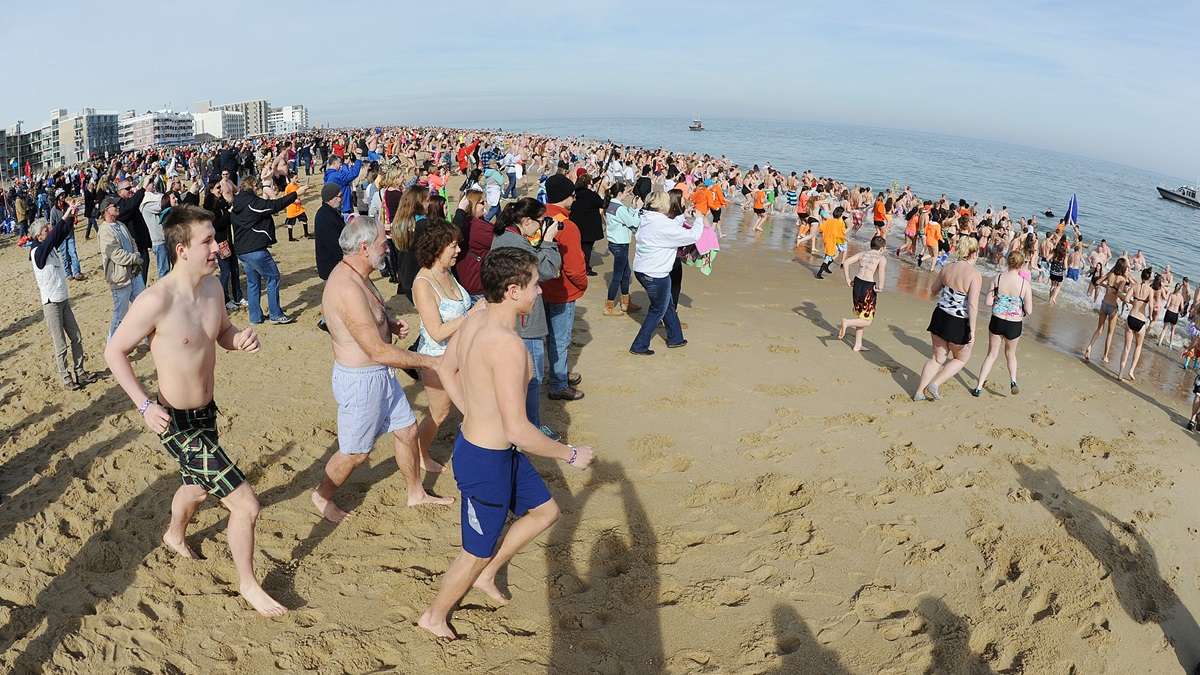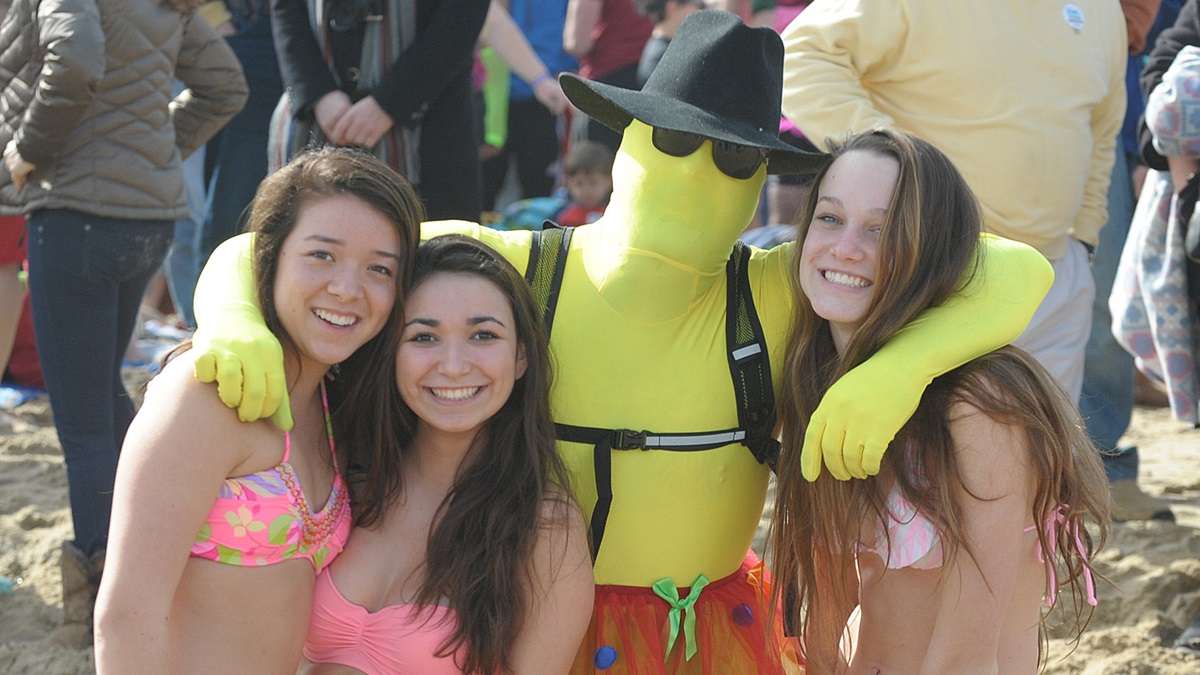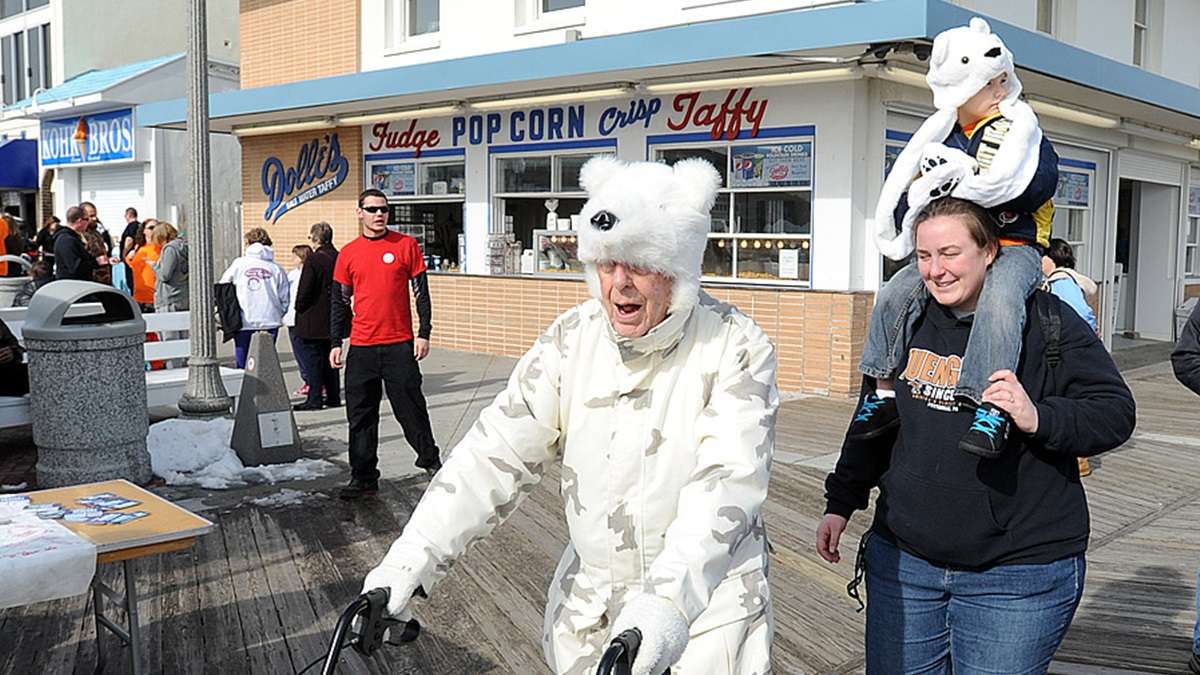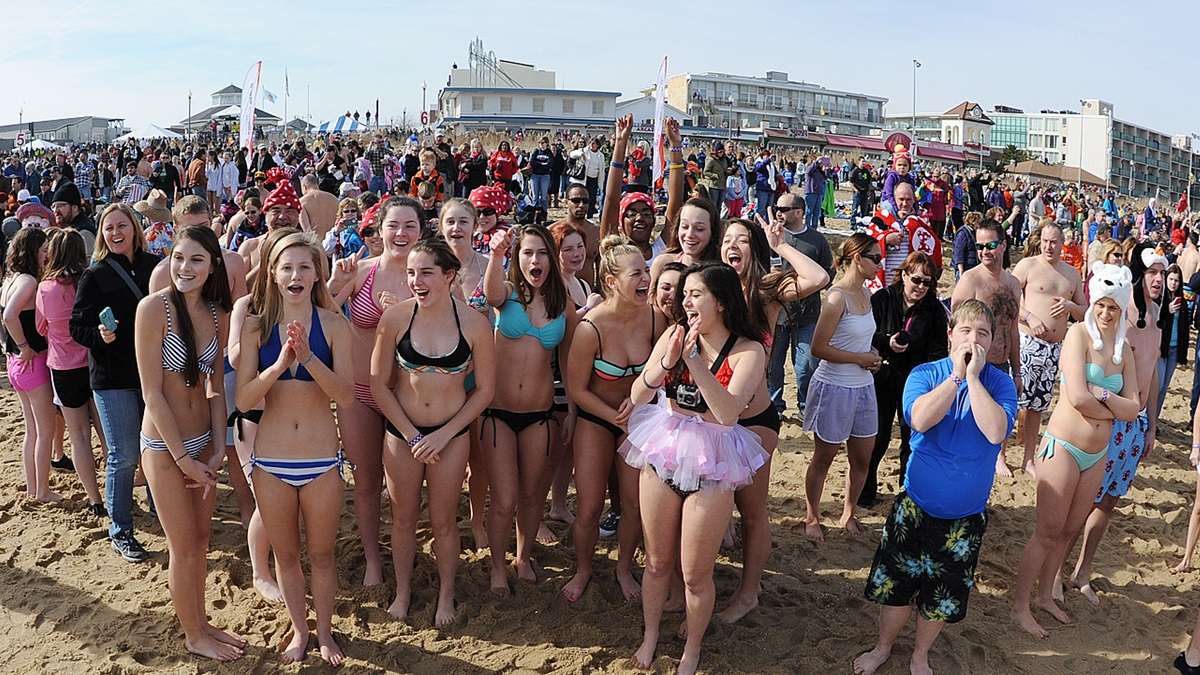Philadelphia Beekeepers Guild members to gather for weekend symposium at Penn Charter
-

Making a mad dash for the water. (Chuck Snyder/for NewsWorks)
-

(Chuck Snyder/for NewsWorks)
-

(Chuck Snyder/for NewsWorks)
-

Well, they do say that you lose most of your body heat through your head. (Chuck Snyder/for NewsWorks)
-

A look at the massive crowd that packed the boardwalk to watch the plunge. (Chuck Snyder/for NewsWorks)
-

(Chuck Snyder/for NewsWorks)
-

(Chuck Snyder/for NewsWorks)
-

This plunger discovered that the polar bear is actually his spirit animal. (Chuck Snyder/for NewsWorks)
-

This mini-plunger was all smiles. (Chuck Snyder/for NewsWorks)
-

Some Broncos fans in a happier time on Super Bowl Sunday before the game pointing out the very mild air temperature at 56 degrees, compared to the chilly water temperature at 34 degrees. (Chuck Snyder/for NewsWorks)
-

Taking a stroll on the Rehoboth boardwalk past the iconic Dolle's. (Chuck Snyder/for NewsWorks)
-

February or not, if you're at the beach, why not make a sand castle? (Chuck Snyder/for NewsWorks)
-

A small section of the thousands of plungers wait to head into the chilly waters of the Atlantic Ocean at Rehoboth Beach. (Chuck Snyder/for NewsWorks)
When the temperature dips below freezing, humans just turn up the heat, but what if you live in a hive?
At the Philadelphia Beekeepers Guild’s fourth annual symposium, scheduled for this weekend at William Penn Charter School, one topic at hand will be the effects on honeybees when temperatures drop below freezing – or even below zero – for days on end.
To that end, former Guild president and current board member Adam Schreiber, who spearheads the symposium, said bees have some remarkable methods of survival.
Beating the Polar Vortex
“They really, truly keep each other alive,” said Schreiber of 10 different hives throughout his Fairmount Park neighborhood, including two on his own roof.
A bee on its own, even inside the hive, would quickly freeze, but in cold weather, the colony survives with a behavior called “clustering.”
“They gather in a big mass the size of a basketball, or however big the hive is,” Schreiber explained.
“They basically flex their wing muscles to generate heat, and they rotate from the inside to the outside of the ball,” taking turns in the coldest and warmest places, he continued. “This extreme cold can be tough on the bees when it’s sustained for this long.”
Usually, the bees can survive it (after all, their counterparts as far north as Canada come through, often with the help of a little human-installed insulation), with a few important factors.
Survival mechanisms
“They have to have enough honey to survive on,” Schreiber said.
That means, delicious as it is to us, the bees don’t make honey to sweeten our teacups; it’s their food source throughout the winter when flowers don’t bloom.
So, human keepers should be careful not to take too much, or be sure to offer their bees a replacement in the winter months if their natural supply runs low.
Schreiber recommended a very low-tech test to see whether your bees are going hungry: Just give a little lift to the back of the hive.
“If your hive is very light and the winter isn’t over, your bees need food,” he noted.
The hive also faces population concerns. Since it doesn’t begin raising that year’s bee babies until late January or early February, and some bees do die off before spring, “the colder it is and the longer it [lasts], the harder it is on the colony.”
There’s another interesting, albeit slightly indelicate, fact about wintering bees.
“Bees will not defecate in the hive,” Schreiber said. “They rely on those days when it’s 40 and calm and sunny to come out and relieve themselves.”
Launching the symposium
Schreiber, a lifetime gardening enthusiast, got into beekeeping several years ago.
He has been involved with the Guild since it began in 2009. Four years ago, one of its founders, Joel Eckel (of the Germantown-based We Bee Brothers), who teaches at Penn Charter, secured the school’s theater for the Guild’s first symposium.
“Penn Charter really helped us,” Schreiber said of getting the annual event for all levels of beekeepers off the ground.
This year, the symposium features keynote speakers Dean Stiglitz and Laurie Herboldsheimer. They speak throughout the country about chemical-free beekeeping as well as operate their own Massachusetts-based business, Golden Rule Honey.
The couple also co-authored “The Complete Idiot’s Guide to Beekeeping,” which Schreiber called “an unfortunate name for a really great book.”
“What’s interesting and what you wouldn’t really know from the title,” Schreiber said, is that the book is actually about all-natural “treatment-free” beekeeping, “so it’s a little subversive in that way, which is great.”
Stiglitz and Herboldsheimer will offer a pair of sessions for all attendees: “Microbial Environment in the Hive,” and “Raising Queens & Breeding Local Bees.”
A relaxing science
Schreiber admitted he never thought he’d get so deeply involved with beekeeping.
“Five years into this hobby, I’m still learning about [bees],” he said. Just watching the bees come and go is also “very relaxing … sort of meditative. When you’re inspecting and you’re looking into the hive, they force you to be present, because you need to focus all of your attention on them.”
If you get “clumsy,” pull a wrong move, or rush, the bees will let you know it.
“The outside world drops away, which is kind of nice,” he said.
Event details
The fourth annual symposium of the Philadelphia Beekeepers Guild will be held at William Penn Charter School, 3000 W. School House Lane, from 10 a.m. to 4 p.m. Sunday.
Tickets for the event, which will feature a raffle for a garden-size hive and a range of bee and honey-related vendors, are $35 for adults and $25 for students, seniors and members of the Guild.
For more information or to register, visit www.phillybeekeepers.org.
WHYY is your source for fact-based, in-depth journalism and information. As a nonprofit organization, we rely on financial support from readers like you. Please give today.




